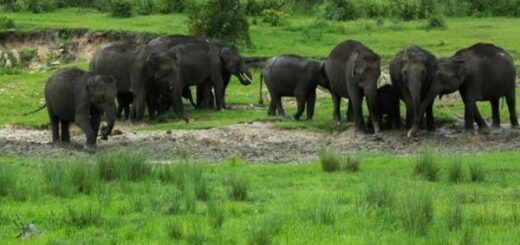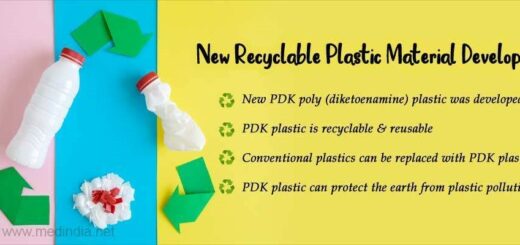National Current Affairs – UPSC/KAS Exams- 7th March 2019
Plastic waste import
Topic: Environment and Ecology
In News: The government has plugged a loophole that allowed the import of plastic waste into India for processing.
More on the Topic:
- Solid plastic waste has been prohibited from import into the country including in Special Economic Zones (SEZ) and by Export Oriented Units (EOU),” the Ministry of Environment, Forest and Climate Change (MoEFCC) Environment Ministry said in an order made public.
- In spite of having a significant plastic pollution load of its own, and a ban on plastic waste imports, imported PET bottles from abroad for processing in Special Economic Zones (SEZ).
- The influx of PET bottles has quadrupled from 2017 to 2018, the Delhi-based environmentalist organisation, Pandit Deendayal Upadhyay Smriti Manch (PDUSM) had pointed out .
- Indian firms were importing plastic scrap from China, Italy, Japan and Malawi for recycling and the imports of PET b
- Bottle scrap & flakes has increased from 12,000 tonnes in FY 16-17 to 48,000 tonnes in FY 17-18 growing @ 290%. India has already imported 25,000 MT in the first 3 months of FY 18-19.
- India consumes about 13 million tonnes of plastic and recycles only about 4 million tonnes. To incentivise domestic plastic recycling units, the government had banned the import of plastic waste, particularly PET bottles, in 2015. In 2016, an amendment allowed such imports as long as they were carried out by agencies situated in SEZs.
Source:Hindu
ISRO, French agency to set up maritime surveillance system
Topic: Science and Technology
In News: National space agency ISRO and its French counterpart CNES sealed an agreement to set up a joint maritime surveillance system in the country in May.
More on the Topic
- The two nations will explore putting up a constellation of low-Earth orbiting satellites that will identify and track movement of ships globally – and in particular those moving in the Indian Ocean region where France has its Reunion Islands.
- Before that, they will initially share data from their present space systems and develop new algorithms to analyse them.
- The CNES-ISRO agreement intends to supply an operational system for detecting, identifying and tracking ships in the Indian Ocean.
- It provides for a maritime surveillance centre to be set up in India in May this year; sharing of capacity to process existing satellite data and joint development of associated algorithms.
- The two agencies have put up two climate and ocean weather monitoring satellites Megha-Tropiques (of 2011) and SARAL-AltiKa (2013) that are considered a model.
- This fleet will be augmented with the launch of Oceansat-3-Argos mission in 2020 along with a joint infrared Earth-observation satellite.
Source: The Hindu
The Swachh Survekshan awards 2019
Topic: Government Initiatives
- World’s largest cleanliness survey
- 4237 cities covered
- Survey completed within 28 days
- GFC STAR RATING,ODF,ODF+ and ODF++
- Completely digitized and paperless survey
- 5 Lakh documents were uploaded by cities
- 41 lakhs Geotagged Photos captured from field
- Massive participation by citizens
- 64 Lakhs citizen feedback collected
- Social Media Outreach of 4 Crores
In News: Indore was adjudged India’s cleanest city for the third year in a row in the Centre’s ‘Cleanliness Survey.
More on the topic:
- The second and third positions were bagged by Ambikapur in Chhattisgarh and Mysuru in Karnataka.
- While the New Delhi Municipal Council was given award for the ‘Cleanest Small City’ award, Uttarakhand’s Gauchar bagged the ‘Best Ganga Town’. The ‘Cleanest Big City’ award has been bagged by Ahmedabad, while Raipur is the ‘Fastest Moving Big City’.
- Ujjain has been the adjudged the ‘Cleanest Medium City’ and Mathura-Vrindavan bagged the tag of the ‘Fastest Moving Medium Cities’.
- Top-ranked cities received a statue of Mahatma Gandhi as a memento for their work towards cleanliness. Swachh Survekshan covered all urban local bodies in the country, making it the largest such cleanliness survey in the world.
Source: The Hindu
PM’s Science and Tech council unveils 9 new missions
Topic: Government Schemes
In News: The Prime Minister’s Science, Technology and Innovation Advisory Council (PMSTIAC) has launched nine mission of national importance, including those on artificial intelligence, quantum computing, electric vehicles and deep ocean exploration.
More On the Topic:
- The missions that would be led by a nodal ministry with collaborations from other ministries, research institutions and industry partners are expected to focus on complex problems faced in each of these chosen fields within a stipulated time-frame.
- The missions are aimed at understanding and conserving biodiversity, developing sustainable agricultural processes, leveraging precision health for personal well-being, recovering wealth from waste, developing and using artificial intelligence, quantum computing, connected mobility solutions and other technologies to address frontier scientific questions and the challenges that the country in particular and the planet in general face.
Various missions:
- While the Quantum Frontier mission will focus on quantum technologies such as quantum computing, quantum cryptology and quantum communication, the mission on artificial intelligence (AI) is expected to witness close academia-industry collaboration at national as well as international levels in creating new knowledge as well as in developing and deploying applications.
- While the Department of Science and Technology (DST) would be lead agency for quantum mission, NITI Aayog is expected to spearhead the AI mission.
- Similarly, the Department of Biotechnology and Department of Health Research will lead a mission on harnessing bioscience for improving health of Indians.
- One of the major tasks cut out for those involved in electric vehicles is to making them energy-efficient and economically viable. Those working on this mission will have to develop light and efficient batteries, vehicle sub-systems and components suitable for Indian conditions, including rare-earth based electric motors.
- The Ministry of Earth Sciences will spearhead a mission that intends to scour the deep ocean.
Model Mains Question: The Prime Minister’s Science, Technology and Innovation Advisory Council (PMSTIAC) has launched nine mission of national importance, including those on artificial intelligence, quantum computing, electric vehicles and deep ocean exploration. Exemplify the impacts of these technologies in day to day life.
Source:The Hindu
Malaysia joins ICC
Topic: International Affairs
In News: Malaysia has become a member of the International Criminal Court.
More on the Topic:
- The ICC is the world’s only permanent war crimes court and aims to prosecute the worst abuses when national courts are unable or unwilling.
- But the tribunal in The Hague has come under fire over high-profile acquittals, while Burundi became the first country to quit the court in 2017 and the Philippines has announced its intention to withdraw.
- Malaysia becomes the 124th member of the court since its establishment in 2002.
International Criminal Court:
- The International Criminal Court (ICC or ICCt) is an intergovernmental organization and international tribunal that sits in The Hague in the Netherlands.
- The ICC has the jurisdiction to prosecute individuals for the international crimes of genocide, crimes against humanity, war crimes, and crimes of aggression.
- The ICC is intended to complement existing national judicial systems and it may therefore exercise its jurisdiction only when certain conditions are met, such as when national courts are unwilling or unable to prosecute criminals or when the United Nations Security Council or individual states refer situations to the Court.
- The ICC began functioning on 1 July 2002, the date that the Rome Statute entered into force.
- The Rome Statute is a multilateral treaty which serves as the ICC’s foundational and governing document. States which become party to the Rome Statute, for example by ratifying it, become member states of the ICC. As of March 2019, there are 124 ICC member states.
Source:Hindu
Bolo app
Topic: Science and Technology
In News: Google launched a mobile application named ‘Bolo’ (speak) to help schoolchildren improve their Hindi and English reading skills.
More on the Topic:
- The beta version of the free application — launched first in India, uses Google’s speech recognition and text-to-speech technology.
- Bolo is designed as a reading-tutor app that helps primary grade students improve their reading.
- The company, citing the Annual Status of Education Report (2018), said that only half the students enrolled in Class 5 in rural India could confidently read a Class 2 level textbook.
Model Mains Question: Annual Status of Education Report (2018), states that only half the students enrolled in Class 5 in rural India could confidently read a Class 2 level textbook. In light of the statement analyze the causes for and suggest measures to improve the same.
Source: The Hindu
National Rural Economic Transformation Project (NRETP)
Topic: Indian Economy
In News: An agreement was signed between World Bank and Government of India to provide a $250-million loan for the National Rural Economic Transformation Project (NRETP).
More on the Topic:
- The key focus of the project is to promote women-owned and women-led farm and non-farm enterprises across value chains.
- It will also enable them to build businesses, access finance, markets and networks and generate employment.
- It would support enterprise development programs for rural poor women and youth.
- It creates a platform to access finance including start-up financing options to build their individual and/or collectively owned and managed enterprises.
- It is an additional financing to the $500-million National Rural Livelihoods Project (NRLP) approved by the World Bank.
Hindu















